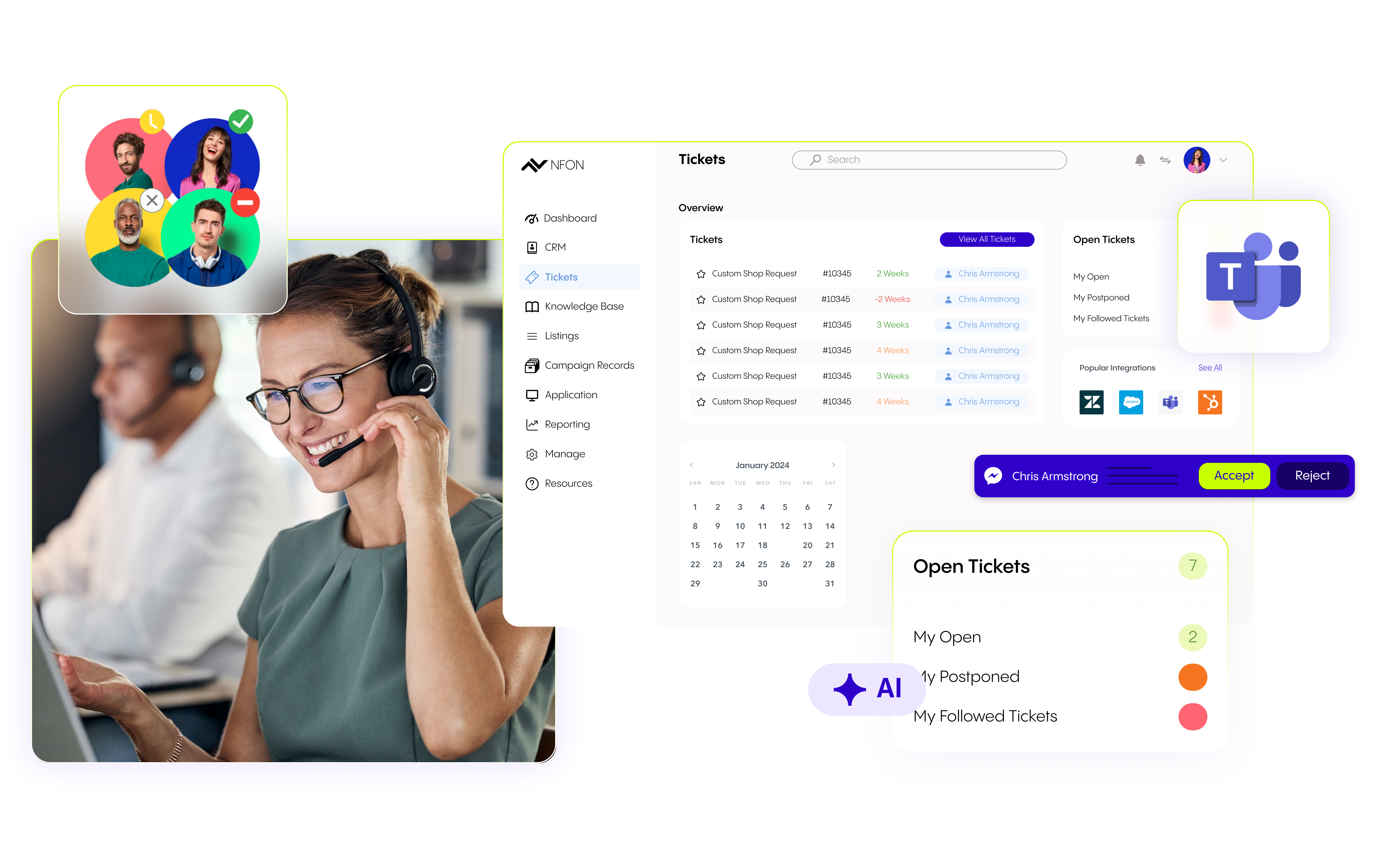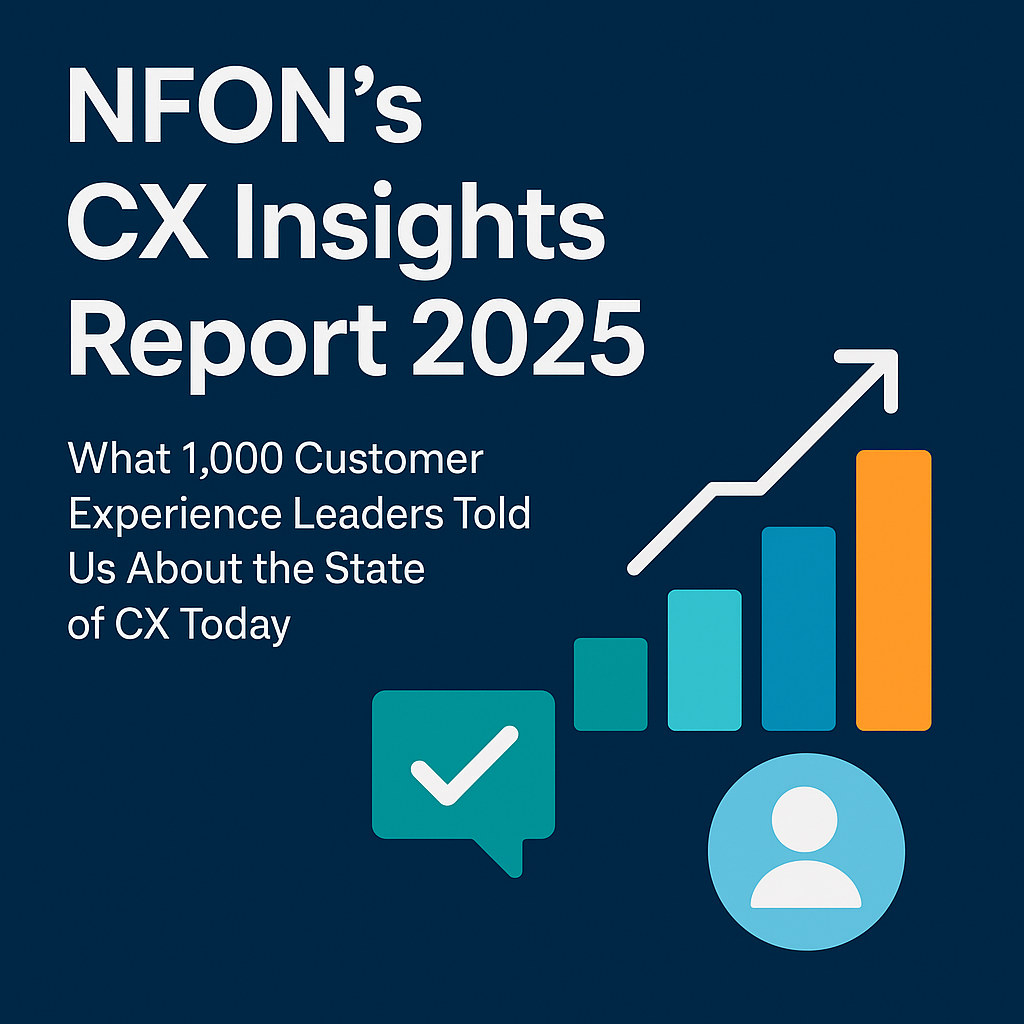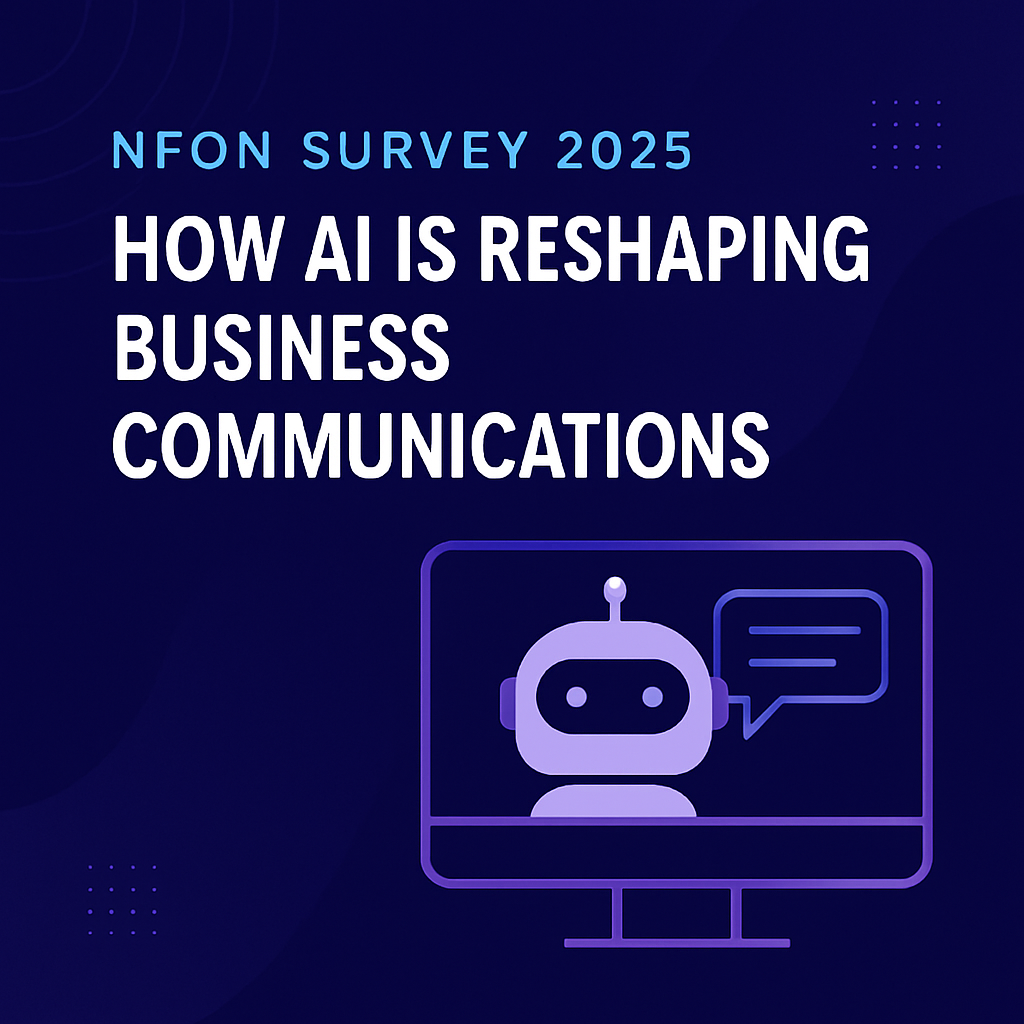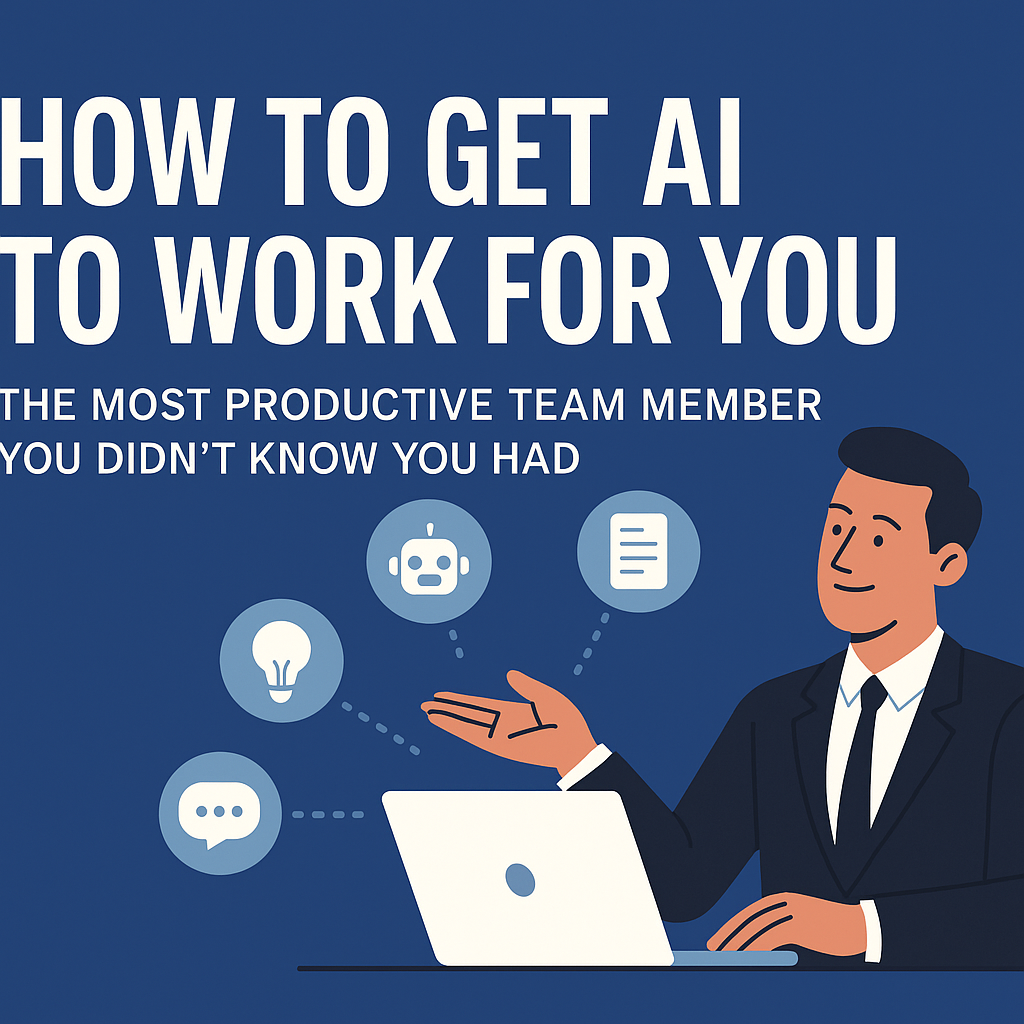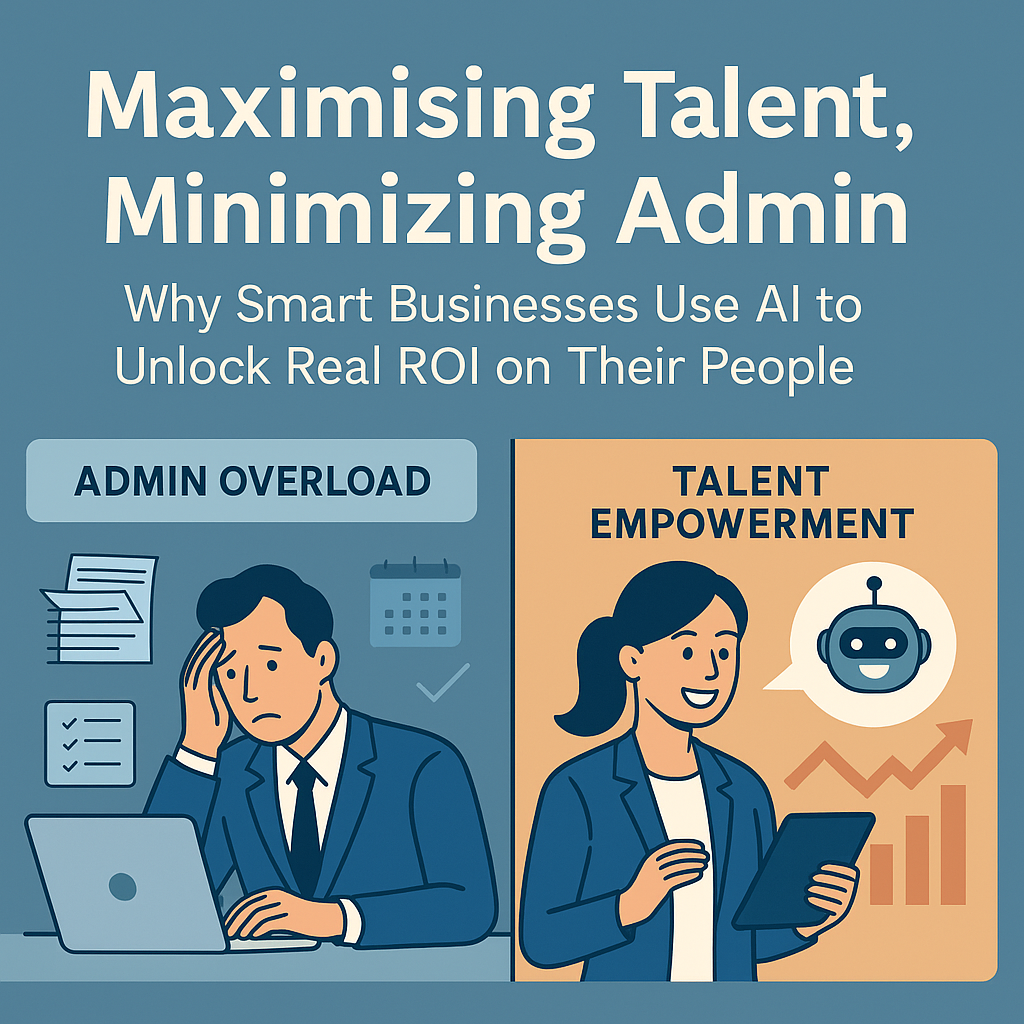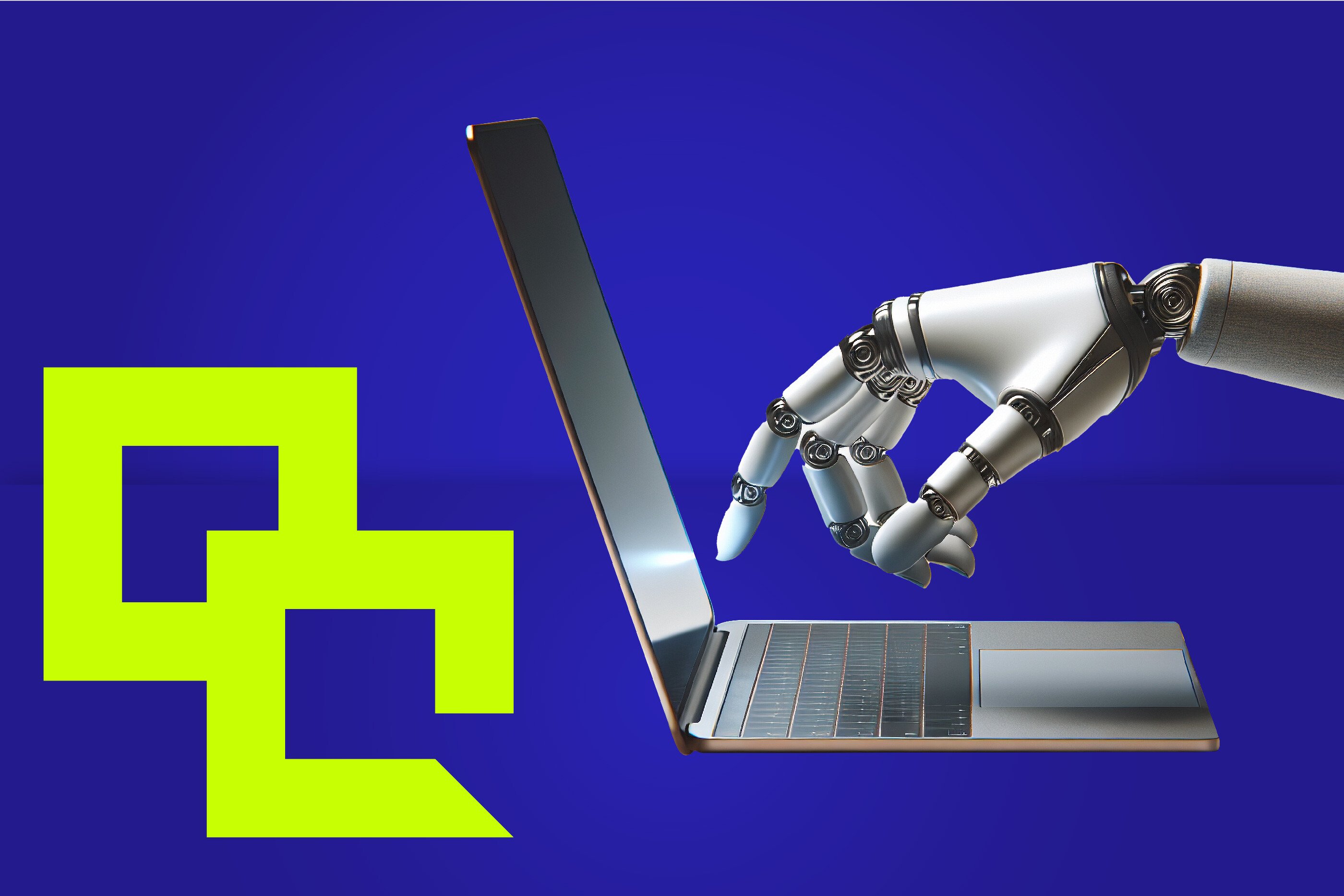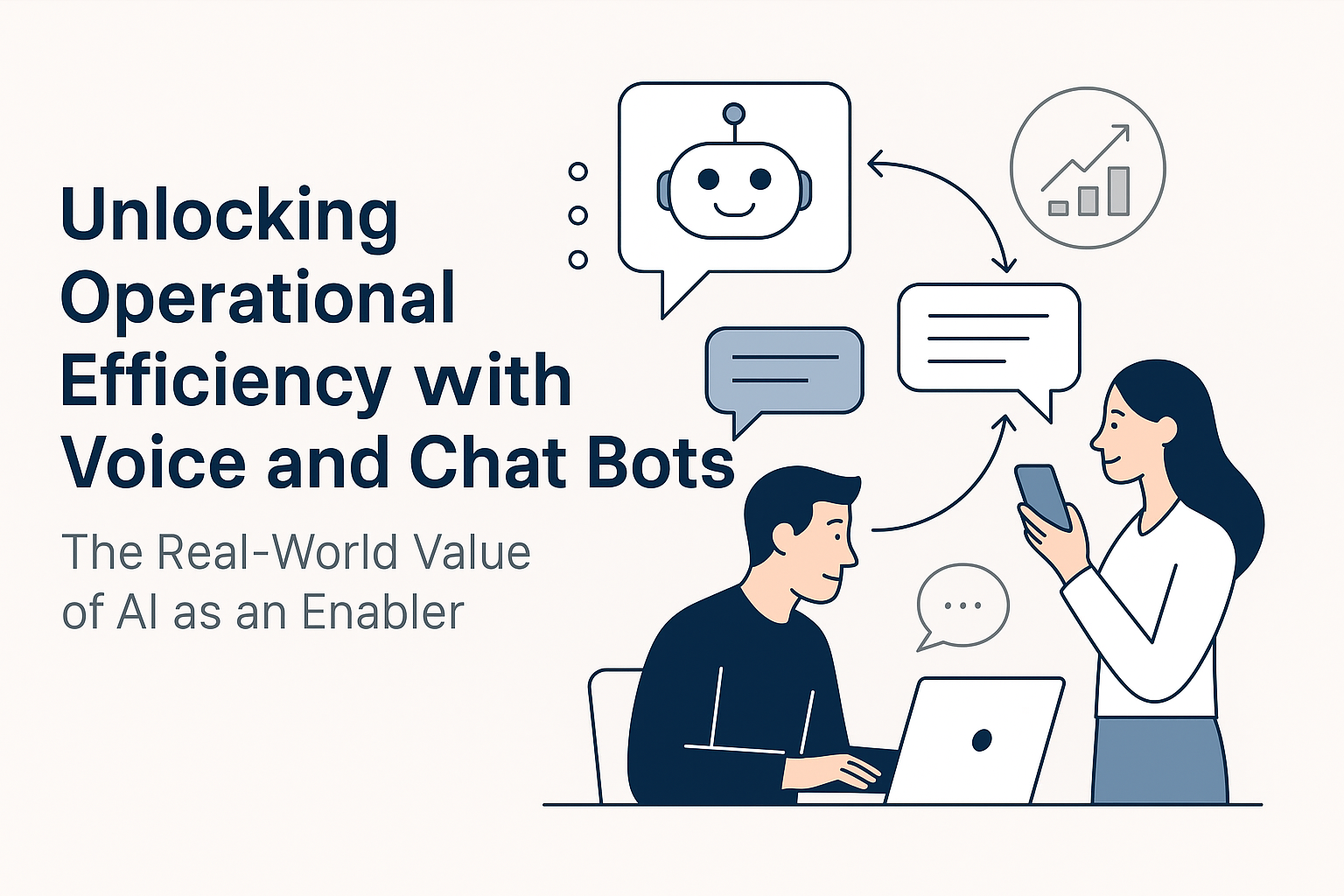Part 7: Navigating the AI Wave - Transforming Marketing Strategies

Approx reading time: 9 mins 57 secs
This is Part 7 of our series on digital marketing tools. You can check out the other parts below:
Introduction: Setting the Stage: Enhancing Marketing Efficiency with Smart Tools
Part 1: Revolutionising Marketing Automation – Smarter Strategies for Better Results
Part 2: The Art of Visual Storytelling – How Design Tools Shape Marketing
Part 3: Data-Driven Decisions – Analytics for Marketing Precision
Part 4: Personalising Audience Engagement – The Role of Email Marketing Tools
Synthesising Success: Integrating Tools for Optimal Marketing Efficiency
Introduction
Everywhere you turn, AI seems to be the topic of discussion, but how exactly is it reshaping the landscape of marketing? This digital revolution extends far beyond the realm of automating mundane tasks; it's fundamentally altering how you engage with your audience and design your marketing campaigns. From unlocking a deeper understanding of customer behaviour to enabling the creation of personalised content at an unprecedented scale, AI platforms are setting new benchmarks for interaction and engagement in the marketing domain.
In this blog we’ll be talking about the transformative role of AI in modern marketing, highlighting how it's changing customer engagement and the creation of content, opening a new chapter in the way brands connect with their audience.
With a focus on groundbreaking AI tools like ChatGPT, Synthesia, and Midjourney, we'll explore the innovative ways these technologies are empowering marketers to elevate their strategies and forge deeper connections with their customers in the digital age.
The Rising Tide of AI in Marketing
The journey of Artificial Intelligence (AI) in marketing from a burgeoning concept to an indispensable asset traces a path of innovation and transformation. Initially regarded as a futuristic notion, AI has matured into a vital component of the marketer's toolkit, fundamentally altering the dynamics of customer interaction and engagement. Its evolution showcases a shift from simple automation and data analysis to sophisticated predictive algorithms and machine learning, enabling marketers to anticipate customer needs and tailor their strategies accordingly.
In the current landscape, the influence of AI in marketing strategies is widespread, cutting across various industries with remarkable versatility. For instance, in the retail sector, AI offers personalised shopping experiences through recommendation engines that suggest products based on past purchasing behaviour and browsing history. In healthcare, AI-driven platforms can tailor patient communication and outreach, ensuring individuals receive timely information and reminders tailored to their health needs.
From finance, where AI algorithms predict customer financial behaviours and tailor services accordingly, to entertainment, where streaming services use AI to personalise viewing recommendations, AI is becoming more and more widely used. It empowers marketers to predict trends and consumer behaviours before they become obvious.
This adoption of AI has set a new standard in marketing, where data-driven insights and automated processes streamline operations, enhance decision-making, and unlock new avenues for creativity and innovation.
Enhancing Customer Engagement with AI
No more is personalisation a novelty or a nice to have, it’s now expected online. And AI tools are at the forefront of meeting this demand, offering unprecedented personalisation capabilities at scale. By harnessing the power of AI, you're able to dissect vast datasets to understand individual customer preferences, behaviours, and needs. This deep level of insight enables the delivery of tailored content, recommendations, and interactions that resonate on a personal level with each customer, significantly enhancing engagement and satisfaction. A well known use of this is Spotify. They use AI to curate personalised playlists for each of its users, a move that has redefined user experience and loyalty in the music streaming industry.
Predictive analytics and targeting represent another facet of AI's transformative impact on marketing. By analysing past consumer data, AI algorithms can predict future buying behaviours and preferences, allowing for the targeting of marketing efforts with unprecedented precision. This means that instead of casting a wide net with generic messaging, you can use AI to identify and target specific segments of your audience with messages that are most likely to appeal to them.
Together, personalisation at scale and predictive analytics are redefining customer engagement. By making every interaction feel uniquely tailored and anticipating customer needs before they even arise, AI is setting a new benchmark for what it means to engage with your audience effectively.
Overcoming Challenges with AI in Marketing
While the advent of AI in marketing opens huge possibilities, it also presents unique challenges, particularly in the realm of ethics. Ethical considerations around privacy, consent, and transparency become paramount as AI tools delve deeper into customer data to personalise experiences. The key to responsible AI use is maintaining a balance between leveraging AI for marketing insights and respecting customer privacy. As marketers, ensuring your AI tools comply with such regulations not only protects you legally but also builds trust with your audience.
Integrating AI with human creativity is another challenge that can significantly amplify the impact of your marketing strategies. While AI can process and analyse data at an unprecedented scale, human insight is essential for interpreting this data in a way that resonates on a human level.
Creativity remains a distinctly human trait, and the most compelling marketing strategies come from a blend of AI's analytical power and human creativity. This allows for creating marketing messages that are data-driven and emotionally engaging. For example, Netflix uses AI to suggest content based on viewing habits which is really effective when it’s combined with creative content curation and presentation, making recommendations feel personal and engaging.
Navigating these challenges requires a thoughtful approach to AI integration, where ethical considerations and the creative human touch are not sidelined but rather viewed as essential components of your marketing strategy.
Spotlight on AI Tools Transforming Marketing
In this section we’ll be talking about three AI tools that are super important to have in your marketing toolbox: ChatGPT, Synthesia, and Midjourney. Each of these offers a unique set of capabilities that are changing how brands create content, engage with customers, and convey their messages.
ChatGPT is redefining content generation with its advanced language models, providing personalised and instantaneous communication at scale.
Synthesia, on the other hand, is enabling brands to produce custom video content quickly and without the traditional costs associated with production.
Lastly, Midjourney introduces an innovative approach to design and imagery, allowing marketers to generate visually stunning content that captures the essence of their brand and communicates with audiences in new and impactful ways.
ChatGPT: Personalising Customer Interaction and Content Creation
Unless you’ve been living under a rock, you’ve probably heard of ChatGPT. Since its release in late 2022, ChatGPT has rapidly become a linchpin in the arsenal of modern marketers. Its capabilities extend far beyond generating text; ChatGPT is a versatile tool for idea generation, brainstorming, enhancing customer communication, content strategy and pretty much anything else you can think of.
Overview of ChatGPT
At its core, ChatGPT is designed to understand and generate human-like text based on the input it receives. It can write emails, draft articles, build templates, and much more, mimicking a human's understanding of language and context. Its ability to process and generate information quickly makes it an invaluable resource for marketers looking to streamline their workflows and foster creative output.
Customer Service Transformation
One of the most immediate impacts of ChatGPT in marketing has been its transformation of customer service. Businesses are deploying ChatGPT to power chatbots that provide instant, 24/7 responses to customer inquiries. Unlike traditional chatbots, ChatGPT can understand and respond to complex queries with a level of nuance and personalisation that significantly improves the customer experience. For example, a retail company might use ChatGPT to answer frequently asked questions, offer product recommendations, or assist with order tracking, ensuring customers receive timely and relevant support.
Content Creation Revolution
Despite ChatGPT's capacity to streamline content creation, it faces criticism for sometimes producing content that may seem generic. The key to leveraging ChatGPT effectively lies in crafting precise prompts that mirror your brand's tone of voice, followed by thorough human editing to infuse the unique essence and personality of your brand into the content. This approach transforms ChatGPT from a mere content generator to a powerful tool for brainstorming and drafting, providing a foundation that marketers can refine to produce engaging and brand-aligned narratives. By blending ChatGPT's efficiency with human creativity, marketers can overcome the challenge of generic output, ensuring their content resonates deeply with their audience while staying true to their brand's identity.
Impact on Engagement and Reach
The personalised interactions and tailored content made possible by ChatGPT significantly impact audience engagement and content reach. By providing content that is more relevant and engaging to the audience, marketers can see improvements in metrics such as time spent on site, social media shares, and open rates for email campaigns. Furthermore, the use of ChatGPT in creating more personalised and responsive customer service interactions fosters a stronger relationship between the brand and its customers, potentially leading to higher customer retention rates and increased brand loyalty.
In essence, ChatGPT offers marketers a powerful tool to enhance the creativity and efficiency of their marketing strategies. By embracing ChatGPT for everything from customer service to content creation and beyond, marketers can unlock new possibilities for engaging with their audience and driving marketing success.
Synthesia: Video Content Production
Synthesia, an AI video platform, is transforming the video content production landscape. It empowers brands to create high-quality, customised video content without the traditional barriers of cost and resource-heavy production processes.
Introduction to Synthesia
Synthesia offers a solution that leverages AI to generate video content, effectively removing the need for camera crews, actors, and extensive editing. This technology enables the creation of realistic digital avatars that can deliver any message in multiple languages, making it a powerful tool for global campaigns.
Cost-Effective Video Production
By eliminating the need for traditional video production resources, Synthesia drastically reduces the costs associated with creating engaging video content. Brands can now produce videos that once would have required significant investment in time, equipment, and personnel, with just a fraction of the budget and in considerably less time.
Customisation and Scalability
The platform's ability to produce diverse, customised content at scale allows brands to communicate more personally with their audience. Whether it's delivering messages in different languages or tailoring content to specific segments of the market, Synthesia enables brands to scale their video marketing efforts without compromising on the personal touch that today's consumers expect.
Malaria No More & David Beckham: A Case Study
A standout example of Synthesia's impact is the campaign created for Malaria No More, featuring David Beckham. The challenge was to engage decision-makers in the developed world about malaria, a disease predominantly affecting the developing world. Synthesia enabled Malaria survivors to share their stories through Beckham's digital avatar, speaking in nine languages. This approach resulted in over 700 million global digital impressions and marked the disease's peak awareness in nearly three years. The campaign showcased the versatility of Synthesia’s AI technology as well as its potential to amplify messages for social good.
Midjourney: Transforming Visual Marketing
Midjourney is leading the charge in a visual marketing revolution, giving brands the AI tools they need to push the boundaries of design and imagery.
Understanding Midjourney
At its core, Midjourney is a text-to-image AI platform for high-quality design, making it accessible to marketers regardless of their graphic design expertise. It stands out for its ability to understand and interpret creative briefs, translating abstract concepts into compelling visual content. Whether it's creating brand logos, social media graphics, or marketing collateral, Midjourney transforms the traditional design process, making it faster, more intuitive, and infinitely more scalable.
Creative Design at Scale
The true power of Midjourney lies in its capacity to produce creative designs at an unprecedented scale. For marketers, this means the ability to rapidly generate a diverse array of visual content that aligns with their brand's aesthetic and campaign goals. This scalability accelerates content production and encourages experimentation with different visual styles and themes, ensuring marketing campaigns remain fresh and engaging.
Impact on Branding and Identity
Midjourney's AI-driven visuals significantly enhance brand identity and storytelling, offering a new dimension to brand narratives. By creating visually stunning and cohesive imagery, brands can forge a stronger connection with their audience, conveying their message and values in a more impactful manner. For instance, a lifestyle brand could use Midjourney to produce a series of images that reflect its commitment to sustainability, weaving these visuals into a compelling narrative that resonates with environmentally conscious consumers, without the need for expensive equipment and photoshoots.
Elevating Visual Communication
Midjourney's contribution to marketing campaigns extends beyond mere aesthetic appeal; it's about elevating visual communication to new heights. With its ability to generate detailed, high-quality images, Midjourney allows marketers to tell more nuanced and visually captivating stories. This enhanced visual storytelling grabs the attention of your audience and deepens audience engagement, making marketing messages more memorable and effective.
Midjourney is ushering in a new era of visual marketing, where AI-driven design and imagery open up limitless possibilities for creative expression and brand differentiation. As brands continue to explore and embrace Midjourney's capabilities, the landscape of visual marketing is set to become more vibrant, diverse, and engaging than ever before.
What’s Next for AI in Marketing?
With AI moving at such a rapid pace, it’s hard to predict what could come next, but we do know that the landscape of marketing is being redrawn by emerging AI technologies, each promising to add more depth, personalisation, and efficiency to how businesses reach and engage with their audiences.
Emerging AI technologies are poised to deepen the level of personalisation and automation in marketing to unprecedented levels. We're moving towards a future where AI can predict not just consumer behaviour but also create dynamic marketing strategies in real-time, adapting to changes in the market instantly.
Technologies like generative AI and natural language processing will continue to evolve, making content creation even more nuanced and context-aware. And advancements in AI-driven analytics will enable marketers to uncover insights from data that were previously inaccessible, opening up new opportunities for targeted marketing that truly resonates with individual preferences and needs.
Preparing for an AI-Dominant Future
For businesses to thrive in an AI-dominant marketing future, staying ahead of the curve will be crucial. Adopting the latest AI technologies is not enough; fostering a culture of continuous learning and innovation within your teams will be needed. Begin by experimenting with AI tools in different facets of your marketing strategy—from customer service chatbots and content creation to data analysis and insight generation. And don’t overlook investting in training for your team to equip them with the skills needed to take advantage of the benefits of these tools.
Adapting to AI in marketing also requires a mindset shift. Embrace the experimental nature of AI, understanding that not every initiative will succeed, but each will provide valuable learnings. Moreover, as AI technologies evolve, so too should your strategies. Stay informed about the latest developments in AI and be prepared to pivot your approach as new tools and applications become available.
Conclusion - The Key Takeaways
Now that we've explored the ins and outs of AI's role in marketing, let's recap the key points we've touched on.
-
The Evolving Role of AI in Marketing: AI has transitioned from a novel technology to a fundamental component of the marketing toolkit, enhancing how brands engage and understand their audiences.
-
AI's Impact on Customer Engagement: Through advanced personalisation and predictive analytics, AI tools are redefining the standards for engaging with customers, making every interaction more meaningful.
-
Challenges and Ethical Considerations: Successfully integrating AI into marketing strategies requires navigating ethical considerations and blending AI capabilities with human creativity to maintain authenticity and compliance.
-
Spotlight on AI tools
- ChatGPT: This tool is transforming customer service and content creation by offering personalised communication and assisting in the generation of creative content, though it requires careful prompting and editing to align with your brand's voice.
- Synthesia: Revolutionising video content production by allowing brands to create customised video content efficiently and cost-effectively, as demonstrated by the impactful Malaria No More campaign featuring David Beckham.
- Midjourney: Changing the game in visual marketing with its AI-driven design and imagery, enabling brands to produce stunning visual content that enhances brand identity and storytelling.
- Preparing for an AI-Dominant Future: The future of marketing lies in embracing AI, necessitating ongoing learning, experimentation with AI tools, and strategic adaptation to leverage these technologies effectively.
As we turn the page towards the final instalment of our series, we're gearing up for a comprehensive wrap-up. In the next blog, we'll take a bird's-eye view of everything we've covered, summarising the key insights from each blog in the series so far. It’ll be your go-to guide for the most impactful marketing tools and strategies we've explored. Stay tuned for the grand finale!
Similar articles
Category
- unified communications (38)
- remote working (34)
- smarter working (27)
- cloud telephony (26)
- customer experience (25)
- nvoice for microsoft teams (23)
- AI (19)
- Digital Transformation (19)
- public sector (19)
- cloud contact centre (17)
- Centralino Virtuale (16)
- agile workforce (14)
- microsoft teams (13)
- channel partners (12)
- CX (10)
- cloud communications (10)
- customer service (10)
- AI chatbots (9)
- ccaas (9)
- collaboration (9)
- marketing (7)
- user personas (7)
- Smart Working (6)
- contact centre (6)
- operator connect (6)
- IT resellers (5)
- artificial intelligence (5)
- cchub (5)
- ms teams (5)
- Hybrid working (4)
- analytics (4)
- b2b sales (4)
- cybersecurity (4)
- data security (4)
- direct routing (4)
- omni-channel (4)
- partners (4)
- ucaas (4)
- Customer retention (3)
- MSPs (3)
- ai in customer service (3)
- business communication (3)
- chatbot solutions (3)
- chatbots for business (3)
- compliance (3)
- contact center hub (3)
- Collaboration tools (2)
- Contact Center (2)
- ISDN switch off (2)
- MRR (2)
- MaaS (2)
- PSTN (2)
- Partner Program (2)
- ai for employee productivity (2)
- ai voice bots (2)
- automation (2)
- business continuity (2)
- chatbot for customer service (2)
- consultative selling (2)
- guide (2)
- ict resellers (2)
- importance of technology in customer service (2)
- isdn (2)
- marketing as a service (2)
- ms teams security (2)
- sales growth (2)
- selling strategies (2)
- teams calling (2)
- Chat GPT (1)
- Customer aquisition (1)
- Digital Workplace (1)
- FCA compliant call recording (1)
- HR tech (1)
- Hardware (1)
- NFON UK (1)
- PCI compliance call recording (1)
- PSTN Stop Sell (1)
- SIP (1)
- SIP trunk (1)
- SIP trunking (1)
- SaaS (1)
- UK Market (1)
- account-based selling (1)
- ai enablement (1)
- ai in business (1)
- ai productivity tools (1)
- analytics 365 (1)
- b2b (1)
- business growth (1)
- business tips (1)
- c5 certification (1)
- call recording (1)
- career progression (1)
- chat bots (1)
- checklist (1)
- christmas (1)
- cloud solutions (1)
- cold calling (1)
- communication technology (1)
- courier companies (1)
- cross selling (1)
- data centre security (1)
- deskphones (1)
- digital detox (1)
- digital transformation (1)
- ecommerce (1)
- education (1)
- employee experience (1)
- fashion retail (1)
- generative ai (1)
- hospitality (1)
- inbound marketing (1)
- lead generation (1)
- love and communication (1)
- market research (1)
- meaningful conversations (1)
- mental health (1)
- microsoft 365 (1)
- modern love stories (1)
- ncontactcenter (1)
- new normal (1)
- office management solutions (1)
- office working (1)
- operations strategy (1)
- partner programme (1)
- post-call automation (1)
- predictions (1)
- productivity (1)
- professional services (1)
- recurring revenue (1)
- sales effectiveness (1)
- sales enablement (1)
- sales enablement tools (1)
- sales progression (1)
- sales trends (1)
- scalability (1)
- scotland (1)
- secure VoIP phone (1)
- secure phone system (1)
- staff training solutions (1)
- strategic partnerships (1)
- sustainability (1)
- technology (1)
- time management (1)
- trusted advisor (1)
- uk business (1)
- voice bots (1)
- voice integration (1)
